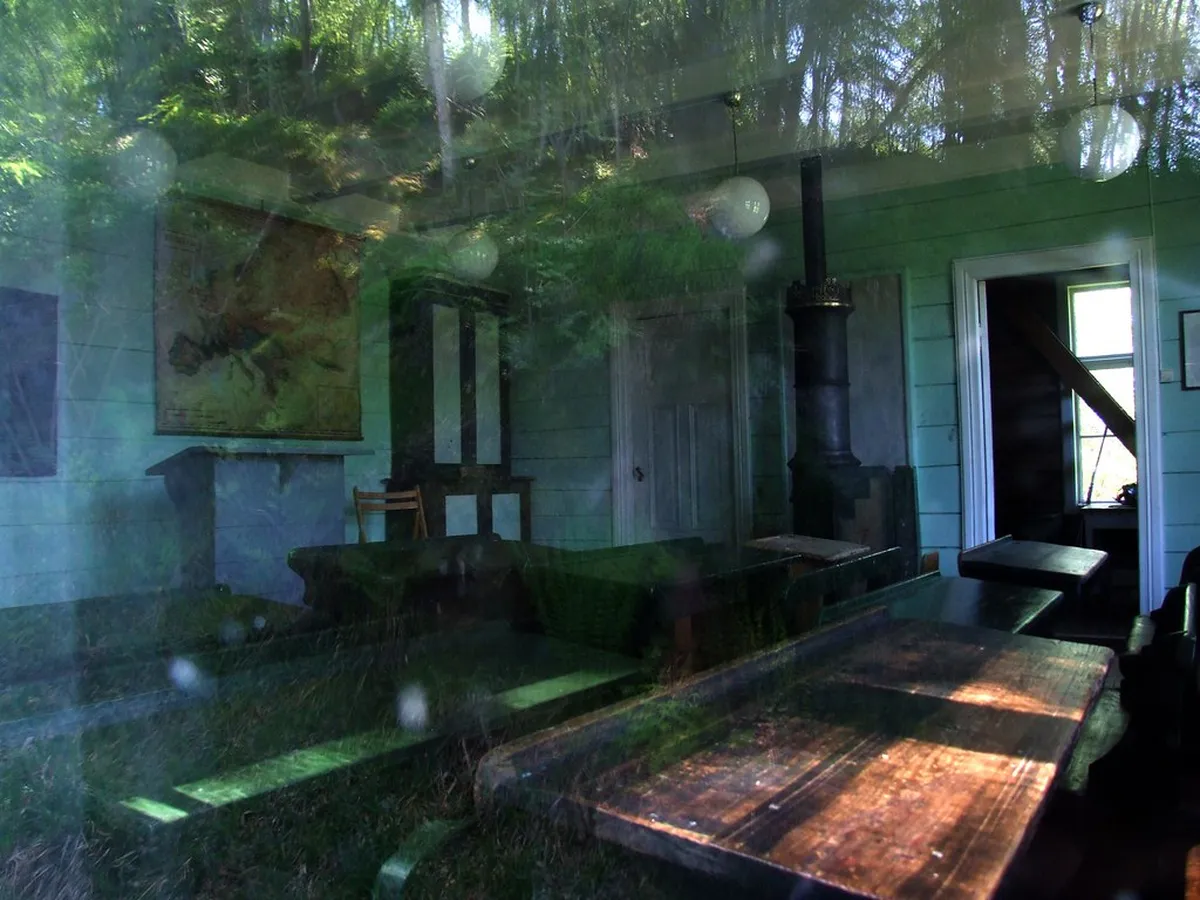Solo Travel in Tokyo: Essential Tips for Independent Adventurers
Tokyo stands as one of the world's premier destinations for solo travelers, offering an intriguing blend of safety, efficiency, cultural richness, and social opportunities. This comprehensive guide provides solo adventurers with practical advice, recommended experiences, and insider tips for navigating Japan's dynamic capital independently. Whether you're seeking cultural immersion, culinary adventures, or meaningful connections with locals and fellow travelers, Tokyo rewards the independent explorer with unforgettable experiences tailored to your personal interests and pace. Map out your exploration with our Solo itinerary. Build your perfect itinerary with our Solo itinerary.
Key Takeaways
Plan this trip faster with our free online itinerary maker. Get a personalized day-by-day plan in minutes.
- Tokyo ranks among the world's safest major cities for solo travelers, with low crime rates and efficient public transportation
- Solo-friendly accommodations range from social hostels to traditional ryokan and capsule hotels
- Food tours, cooking classes, and izakaya hopping offer excellent social opportunities for independent travelers
- Tokyo provides numerous cultural experiences perfectly suited for solitary exploration
- Digital tools and social apps help solo visitors connect with locals and fellow travelers
Why Tokyo Is Perfect for Solo Travel
Tokyo presents an ideal environment for solo adventurers, combining practical advantages with enriching experiences that can be fully appreciated when traveling independently. Enhance your Solo experience with our Solo itinerary. Enhance your Solo experience with our Solo itinerary.
The city's exceptional safety record provides peace of mind for solo travelers. With remarkably low crime rates, well-lit streets, and a culture of respect and orderliness, Tokyo allows individuals to explore confidently at any hour. Even in late-night entertainment districts, safety concerns are minimal compared to other global metropolises. For detailed safety information, consult our Tokyo Safety & Etiquette Guide. Map out your exploration with our Solo itinerary.
Tokyo's world-class transportation system eliminates the logistical challenges sometimes faced by solo travelers. The meticulously organized network of trains and subways features clear signage in English, making navigation straightforward even for first-time visitors. This exceptional connectivity means you can efficiently reach attractions across the sprawling city without the need for taxis or group tours. Our Tokyo Transportation Guide provides comprehensive information on mastering the transit network. Create your ideal travel schedule with our Manado itinerary.
For solo travelers, the cultural experience proves particularly rewarding. Japanese culture celebrates individual pursuits and quiet contemplation, making activities like garden visits, temple exploration, and museum tours perfectly suited to solitary appreciation. Unlike destinations where solo diners might feel conspicuous, Tokyo offers countless eateries with counter seating specifically designed for individual patrons. Structure your adventure with our detailed Manado itinerary. Structure your adventure with our detailed Padang itinerary.
Pro Tip: Consider scheduling your solo Tokyo adventure during weekdays when possible, as weekend crowds at popular attractions can be overwhelming for individual visitors. This timing allows for more serene exploration of temples, museums, and gardens. Schedule your trip with our Seminyak itinerary. Coordinate your travel plans with our Gili Trawangan itinerary.
Additionally, Tokyo's abundance of evening entertainment options suitable for solo visitors ensures your adventure doesn't end at sundown. From jazz clubs in Shinjuku to traditional performances of kabuki or noh theater, solo visitors can enjoy nightlife without feeling out of place. The city's all-hours energy means there's always something engaging to experience, regardless of when you prefer to explore. Build your perfect itinerary with our Labuan Bajo itinerary. Organize your journey with our comprehensive Banda Aceh itinerary.
Solo-Friendly Accommodation Options
Tokyo offers diverse accommodation styles that cater specifically to independent travelers, from social environments to unique cultural experiences. Design your dream vacation using our Balikpapan itinerary. Create your ideal travel schedule with our Bandung itinerary.
Social hostels provide ideal bases for solo travelers seeking connection with like-minded adventurers. Properties like CITAN in Nihonbashi and UNPLAN Kagurazaka combine stylish accommodations with communal spaces and organized activities. These establishments often feature in-house bars, regular social events, and knowledgeable staff who can provide personalized recommendations. Many hostels offer private room options alongside dormitories, accommodating different privacy preferences while maintaining the social atmosphere. Enhance your Tokyo experience with our Tokyo itinerary. Enhance your Tokyo experience with our Tokyo itinerary.
For a quintessentially Japanese experience, capsule hotels offer efficient, affordable accommodations uniquely suited to solo travelers. Modern properties like Nine Hours Shinjuku and The Millennials Shibuya have elevated the concept with contemporary design, comfortable sleeping spaces, and excellent amenities. While traditionally gender-segregated, some newer capsule hotels offer mixed floors or private areas for female travelers. These establishments provide a cultural experience in themselves while offering prime locations at reasonable prices.
Solo travelers seeking authentic cultural immersion might consider ryokan (traditional Japanese inns). While often associated with couples or groups, many ryokan welcome solo guests, particularly in Tokyo where business travelers are common. Sawanoya Ryokan in the Yanaka district and Hotel Ryumeikan Tokyo near Tokyo Station offer traditional elements like tatami rooms and communal baths while accommodating single travelers. This option allows for a deeper experience of Japanese hospitality and customs.
For longer stays, business hotels provide practical, economical options with locations near transportation hubs. Chains like Toyoko Inn, APA Hotel, and Dormy Inn offer compact but well-designed single rooms with essential amenities. Many Dormy Inn properties include complimentary ramen in the evenings and onsen (hot spring) baths, creating opportunities for casual interaction with Japanese travelers.
Solo Dining Adventures
Dining alone in Tokyo is not only accepted but often celebrated, with numerous establishments catering specifically to solo patrons.
Tokyo's counter dining culture makes solo meals comfortable and engaging. Sushi bars, ramen shops, and tempura restaurants typically feature counter seating where you can watch chefs practice their craft while enjoying your meal. This arrangement naturally accommodates individual diners and often facilitates interaction with chefs and fellow guests. Sushi Dai at Toyosu Market and the Michelin-starred Nakiryu ramen shop exemplify welcoming counter experiences for solo diners.
Department store food halls (depachika) offer solo diners exceptional variety without the need for restaurant reservations. These culinary wonderlands, found in establishments like Isetan Shinjuku and Takashimaya Nihonbashi, feature dozens of vendors selling everything from traditional Japanese delicacies to French pastries. Purchase various items to create a personalized meal, then enjoy it in nearby parks or designated eating areas without the formality of restaurant dining.
For social dining experiences, consider joining a food tour. Companies like Tokyo Food Tours and Arigato Japan offer small-group culinary explorations of neighborhoods like Shibuya and Asakusa. These experiences provide not only delicious tastings but also cultural context and introductions to fellow food enthusiasts. Similarly, cooking classes at schools like Tokyo Kitchen or Buddha Bellies create natural opportunities for connection through shared culinary creation.
Pro Tip: Look for the ticket vending machine system at casual restaurants—this ordering method eliminates language barriers and makes solo dining even more accessible. Simply purchase your meal ticket and hand it to the staff upon entering.
Evening izakaya hopping in districts like Shinjuku's Golden Gai or Harmonica Yokocho in Kichijoji offers both culinary and social rewards for solo travelers. These tiny Japanese pubs seat only a handful of patrons, creating intimate environments where conversation naturally flows. For solo female travelers, yokocho (alley) dining areas provide lively but safe environments to experience local nightlife.
Cultural Experiences Perfect for Solo Travelers
Tokyo offers numerous cultural activities ideally suited to independent exploration, allowing solo travelers to engage deeply at their own pace.
Museums and galleries provide contemplative environments perfect for solitary appreciation. The Tokyo National Museum in Ueno Park houses Japan's most extensive collection of traditional art, while contemporary spaces like teamLab Planets in Toyosu and Mori Art Museum in Roppongi offer immersive modern experiences. Many museums feature English audio guides, allowing solo visitors to absorb cultural context without guided tours. For art enthusiasts, our 3-Day Tokyo Itinerary highlights key cultural institutions.
Participating in a traditional cultural experience provides unique insights while creating natural opportunities for interaction. Tea ceremony workshops at venues like Happo-en Garden welcome individual participants, as do calligraphy classes at culture centers such as Pigment Tokyo. These sessions often attract a mix of international visitors and Japanese participants interested in cultural preservation, facilitating cross-cultural connections. Discover more traditional experiences in our Tokyo Cultural Experiences guide.
Spiritual exploration through Tokyo's temples and shrines offers reflective experiences naturally suited to solo travel. Beyond famous sites like Senso-ji and Meiji Shrine, consider visiting lesser-known sanctuaries like Nezu Shrine with its vermillion torii gates or Gotokuji Temple, famous for its collection of maneki-neko (beckoning cat) figurines. Many spiritual sites offer opportunities for solo participation in rituals like goshuin (collecting temple stamps) or omikuji (fortune drawings).
For a uniquely Tokyo experience, explore the city's themed cafés and unusual attractions. From the digital wonderland of Kawaii Monster Café to the surreal Borderless and Planets teamLab exhibitions, these distinctive environments provide memorable solo experiences. Many such attractions appeal to both international visitors and local Japanese, creating natural conversation starters that can lead to unexpected friendships.
Navigating Tokyo Solo: Practical Tips
These practical strategies help solo travelers maximize their Tokyo experience while navigating potential challenges.
Connectivity is essential for solo exploration. Secure a pocket WiFi device (available at airports) or a Japanese SIM card to maintain reliable internet access throughout your journey. Applications like Google Maps and Japan Transit Planner prove invaluable for navigation, while Google Translate with its camera function helps decipher menus and signs. For emergencies, download the Japan National Tourism Organization's Safety Tips app, which provides disaster alerts and emergency contact information.
While language differences exist, communication barriers are often overstated. In Tokyo, most transit signage and attraction information appear in English, and many restaurant chains offer English menus or food displays. Learning basic Japanese phrases demonstrates respect and often elicits enthusiastic appreciation. When detailed communication is necessary, consider using translation apps or carrying a pocket phrasebook.
For social connections, digital tools provide invaluable resources for solo travelers. Apps like Meetup and Couchsurfing list regular gatherings in Tokyo welcoming to international visitors. Language exchange events at venues like Akihabara's Good Heavens Bar create natural opportunities to connect with English-speaking Japanese residents. Tour booking platforms like Voyagin and Airbnb Experiences feature small-group activities specifically designed for independent travelers seeking company.
Pro Tip: If you're comfortable in karaoke settings, Karaoke Kan and similar establishments offer private rooms for solo singers, but Himawari Karaoke Bar in Shibuya creates opportunities to join group sessions with locals and other travelers.
For female solo travelers, Tokyo offers remarkable safety, but certain accommodations cater specifically to women's preferences. Hotels like Mitsui Garden Hotel Ginza Premier and Hotel Wing International offer women-only floors with enhanced amenities. For social accommodations, female-only dormitories at hostels like Imano Tokyo provide secure environments while facilitating connections with fellow travelers.
Solo Day Trips from Tokyo
Tokyo's excellent rail connections make independent day excursions both accessible and rewarding for solo travelers.
Kamakura, often called "Little Kyoto," offers the perfect solo day trip with its collection of temples, the monumental Great Buddha (Daibutsu), and hiking trails connecting spiritual sites. Just one hour from Tokyo by train, this compact historical city can be efficiently explored by a single traveler using the local Enoden tram line or rental bicycles. The beachfront location adds a refreshing coastal element to the cultural experience.
Hakone provides a quintessential Japanese hot spring experience within easy reach of Tokyo. Solo travelers can follow the scenic "Hakone Loop" using various transportation modes (train, cable car, ropeway, and pirate ship) while enjoying stunning Mount Fuji views on clear days. The excellent Hakone Free Pass simplifies transportation logistics for independent visitors. Many ryokan and hot spring baths welcome individual guests, making this a feasible wellness day trip.
For a glimpse of Japan's feudal history, Kawagoe (Little Edo) preserves Edo-period architecture just 30 minutes from central Tokyo. The atmospheric warehouse district, clay bell tower, and traditional sweet shops can be comfortably explored on foot or by rental bicycle. This lesser-known destination offers authenticity without overwhelming crowds, ideal for contemplative solo exploration.
Those seeking natural beauty should consider Mount Takao, accessible via direct train from Shinjuku Station. Multiple hiking trails suit different fitness levels, leading to panoramic city views and the peaceful Yakuo-in Temple. Solo hikers frequently encounter friendly locals, as this mountain is popular with Tokyo residents seeking weekend nature retreats. For additional day trip ideas, consult our Day Trips from Tokyo guide.
Frequently Asked Questions
Is Tokyo safe for solo female travelers?
Will I encounter challenges as a solo diner in Tokyo?
How can I meet people as a solo traveler in Tokyo?
What neighborhoods are best for solo travelers to stay in?
How can I manage to take photos of myself while traveling solo in Tokyo?
Tokyo rewards the solo traveler with unparalleled safety, efficient infrastructure, and unique experiences perfectly suited to independent exploration. By embracing both traditional Japanese culture and the city's innovative spirit, solo adventurers can craft a deeply personal journey through this fascinating metropolis. Whether you're seeking contemplative moments in ancient temples or social connections in modern gathering spaces, Tokyo offers endless possibilities for meaningful solo travel experiences. For additional planning guidance, explore our comprehensive Tokyo Itinerary and adapt it to your individual interests and pace.



